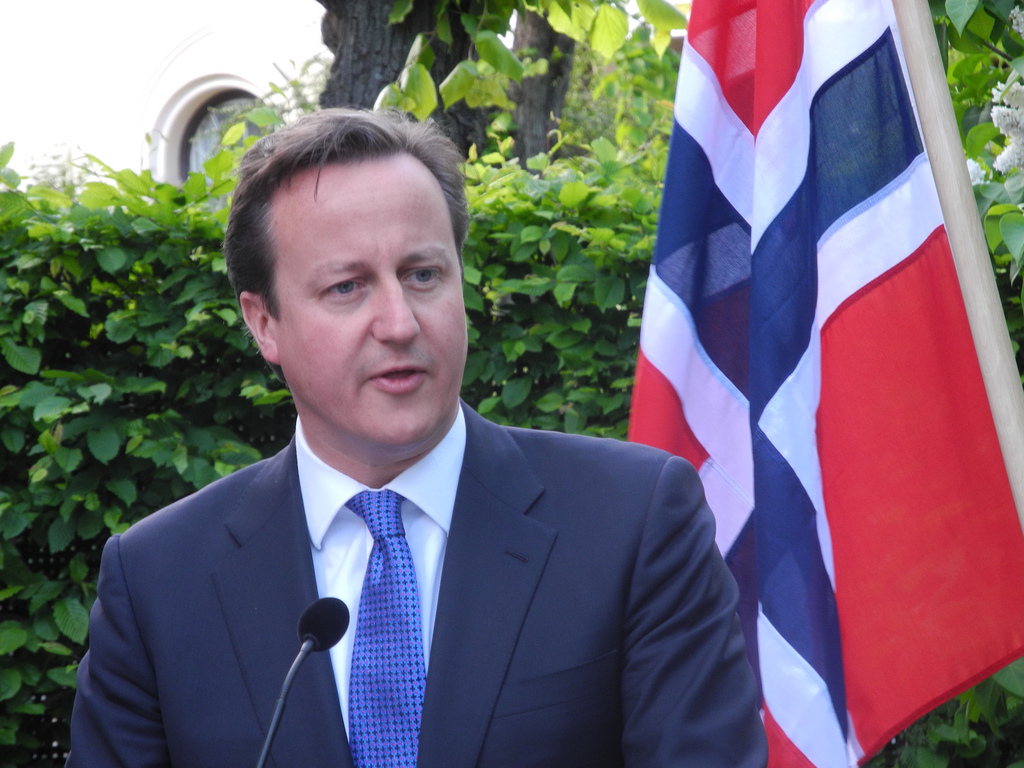Dear Mr Cameron,
As you know, you are responsible for the most disastrous development in the UK’s political and economic history since 1945. Your error has been far more serious than Eden’s at Suez. His foray into latter-day gunboat diplomacy failed to achieve its own objectives and accelerated the loss of Empire, but it did not pose the existential threat to the UK’s future that your Brexit does.
Your error has been much more egregious. Eden failed in 1956 to understand how Britain’s strategic position had changed, but you were much better informed. You understood the strategic position very well. You knew that Britain’s continued membership of the EU was clearly the best way to maximise the country’s economic and political interests in Europe and the world.
You gambled that a referendum on EU membership would produce a Remain outcome, when any competent political analyst could have told you (and perhaps some did) that UK public support for the EU was moved strongly by external “shocks” such as Maastricht and the 2007-8 credit crunch.
Those analysts would also have told you that it was sheer folly to call a referendum, when the EU itself was suffering from the continuing effects of the euro crisis and the world’s worst refugee crisis since World War II.
They would have pointed out that leading politicians (including you on occasion) have been bad-mouthing the EU for more than 30 years, and that the popular press has show similar contempt. You should have realised that the probability of losing the referendum was much higher in 2016 than it had been in 1975 – and that far, far, more was at stake.
I will resist the temptation to ask you what on Earth you thought you were doing. I know that you were following through on a manifesto commitment to hold a referendum (designed to preserve Conservative Party unity). I appreciate that it’s possible you thought you would never have to deliver on that commitment because you believed the outcome of the 2015 general election would be a second Conservative/Liberal Democrat coalition government, which would allow you to jettison your pledge. I also understand why you felt obliged, as a good democrat responding to the will of the people, to follow through on a manifesto commitment once elected.
But the potential costs of Brexit were so huge, it is difficult to see how you could possibly have thought the gamble of an EU referendum was worthwhile. (This is especially so, given that a number of Brexiteers now seem to be having doubts about how far Brexit will allow immigration to be reduced – ironically, the one idea that motivated many of those who voted Leave). We are now starting fully to appreciate just what those costs are:
-
The need to contrive a totally new European strategy outside the EU, when no-one has any clear idea what it might look like or how it might (now) be negotiated.
-
The potential dissolution of the UK, as the Scottish government pushes to remain inside the EU as the rest of the UK leaves it.
-
The serious reopening of old wounds in Northern Ireland, as debate grows around the need for a United Ireland inside the EU.
-
The possibility of having to erect hard borders between Northern Ireland and the Irish Republic, and between Scotland and England.
-
The mountain of changes that will have to be made to the UK’s domestic legislative framework to accommodate Brexit.
-
The short-to-medium term economic costs of the loss of economic confidence that has already taken place.
-
The medium-to-long term costs of reduced trade with Europe and perhaps even with the rest of the world as we search to find new markets and strike new trade deals.
-
The dangerously damaging loss of Foreign Direct Investment into Britain, particularly if foreign investors start to regard Edinburgh and Dublin as the key English-language gateways to the Single European Market;
-
The closing of educational and employment opportunities of younger generations of Britons and the consequent reduction in their life chances and realistic ambitions.
Oh, Mr Cameron, what have you done – and what should you do? If you want to rescue your place in history, it is not enough to have “done the decent thing” by indicating that you will hand over to a new leader. That new leader, as things stand, will be a Leaver who will simply follow through with Brexit, which will almost inevitably incur all the costs (and many others) outlined above.
How can these costs, or at least some of the more serious long-term ones, be avoided? One approach is that we negotiate a deal in the two years after triggering Article 50 and then test its acceptability in the form of a second referendum in 2018. This suggestion is intelligent but fraught with risk. It relies on the whims and prejudices of the 27 EU partners, some of whom, as we all know, will be keen to punish our Brexit pour decourager les autres. The concomitant danger is that any deal that retains the bulk of our EU connections would be rejected by Brexiteers in a second referendum.
The only solution is easy for me to say and difficult for you to do. You need to put the nation’s interests above those of the party and split the party. You need to do some serious politicking inside the Conservatives to engineer a divorce from the eurosceptics.
You need to use your residual power and authority as Prime Minister to approach the (genuinely) pro-EU anti-Corbyn group in the Parliamentary Labour Party (Hilary Benn and Tristram Hunt would be a good starting point) with a view to forming a new Democratic Centre Party. The core aim of this manoeuvre should be to prevent the UK from leaving the EU. You could expect strong support if not direct involvement from the Liberal Democrats.
You should then look to create the conditions for an early, single issue, general election. The DCP would stand on a Remain-in-EU platform and put all other differences aside. An alliance of UKIP and Tory Brexiteers could fight it out with the rump Corbynisti for the remainder of the vote share.
I, for one, would enjoy watching that. For its part, the DCP would know that it could hammer out a common policy platform after an election victory very quickly, just as you did with the Liberal Democrats in 2010. The DCP could even constitute itself as a Temporary Crisis Coalition, constructed with the expectation that it might be dissolved at some future point, once the crisis had been averted.
If elected – which, given the chaos the Brexit referendum vote has engendered, would be extremely likely – the DCP government would assert that the popular will had been reversed through recourse to the usual British constitutional device – a general election – and announce that the UK was not leaving the EU.
There are two possibilities for getting an early election called. The mechanism in either case, under the fixed-term parliaments act, would be two successive motions of no confidence in Her Majesty’s Government.
Option one, which would be preferable, is to create the DCP and engineer the No Confidence motions before October/November 2016 – before Article 50 is invoked. This would clearly be a very tight timescale, but the stakes could not possibly be higher.
Option two is to wait until after we have a new pro-Brexit prime minister in office. This is more complicated because you would no longer be PM, but the creation of the DCP, even at this later stage, could still be used to effect the necessary votes of no confidence. The DCP and SNP together would have a clear majority of Commons votes. The SNP would lose all political credibility if it passed up an opportunity to keep the UK in the EU.
Labour is ripe for a split. The Conservatives are ripe for a split. A bold politician who wishes to make reparation to the nation for his egregious political error needs to act decisively when the nation’s vital interests are at stake.
You know that this is the case now. A disaster for the Conservative Party or the Labour Party (both of which may be imminent anyway) is of nothing compared to the disaster that Brexit presents to the nation. Please, Mr Cameron: be brave and be bold. You have been before. In the interests of the United Kingdom, please do the right thing now. Put all your political weight behind the creation of a new centre party that keeps Britain in the EU (and thereby avoids all the costs of Brexit) and rejuvenates the centre of gravity of British politics.
 David Sanders ne travaille pas, ne conseille pas, ne possède pas de parts, ne reçoit pas de fonds d'une organisation qui pourrait tirer profit de cet article, et n'a déclaré aucune autre affiliation que son poste universitaire.
David Sanders ne travaille pas, ne conseille pas, ne possède pas de parts, ne reçoit pas de fonds d'une organisation qui pourrait tirer profit de cet article, et n'a déclaré aucune autre affiliation que son poste universitaire.
David Sanders, Regius Professor of Political Science, University of Essex
This article was originally published on The Conversation. Read the original article.




 US Pushes Ukraine-Russia Peace Talks Before Summer Amid Escalating Attacks
US Pushes Ukraine-Russia Peace Talks Before Summer Amid Escalating Attacks  China Warns US Arms Sales to Taiwan Could Disrupt Trump’s Planned Visit
China Warns US Arms Sales to Taiwan Could Disrupt Trump’s Planned Visit  Jack Lang Resigns as Head of Arab World Institute Amid Epstein Controversy
Jack Lang Resigns as Head of Arab World Institute Amid Epstein Controversy  TrumpRx Website Launches to Offer Discounted Prescription Drugs for Cash-Paying Americans
TrumpRx Website Launches to Offer Discounted Prescription Drugs for Cash-Paying Americans  TrumpRx.gov Highlights GLP-1 Drug Discounts but Offers Limited Savings for Most Americans
TrumpRx.gov Highlights GLP-1 Drug Discounts but Offers Limited Savings for Most Americans  BTC Flat at $89,300 Despite $1.02B ETF Exodus — Buy the Dip Toward $107K?
BTC Flat at $89,300 Despite $1.02B ETF Exodus — Buy the Dip Toward $107K?  JPMorgan Lifts Gold Price Forecast to $6,300 by End-2026 on Strong Central Bank and Investor Demand
JPMorgan Lifts Gold Price Forecast to $6,300 by End-2026 on Strong Central Bank and Investor Demand 

































